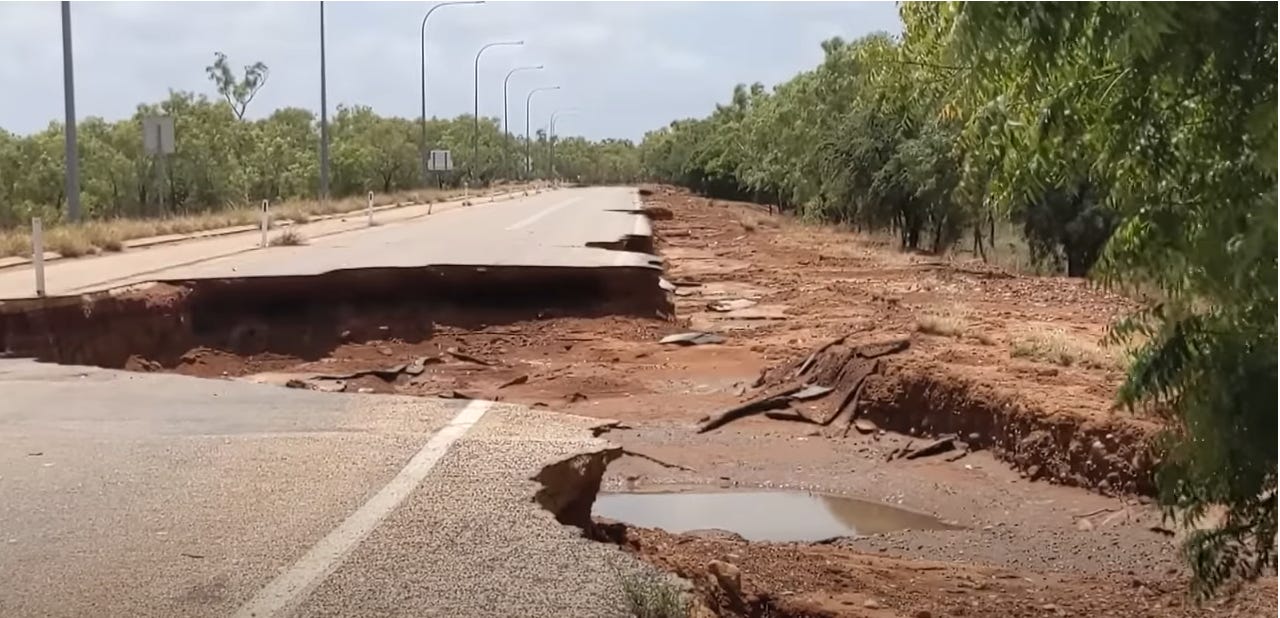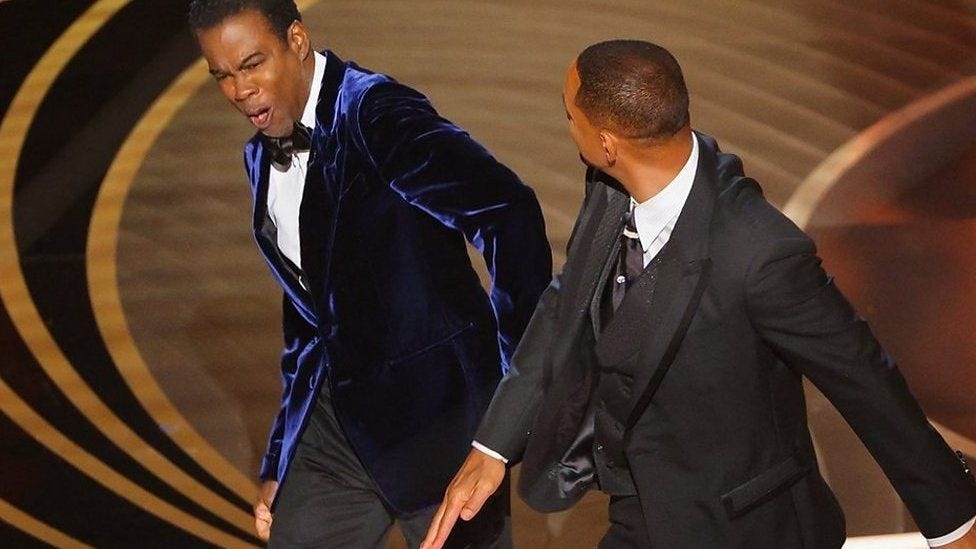2022: Everything, everywhere, all at once
After a notably difficult year, is the modern political class equipped for 2023?
Over the holiday break, some people bought their prawns for Xmas as usual, while others were met with the realisation that their variable interest home loan rates were changing the logic behind basic Aussie Xmas assumptions. After a year of unprecedented hardship felt by families around the nation, the growing poor in the lucky country exhaled another breath, miles below the Henderson poverty line, crushed by the rising cost of living, and mocked by the $253 billion in Stage 3 tax cuts that sat on their chests like an overweight succubus.
Since the bushfires and the pandemic, we’ve counted out the years more consciously than we’re used to. Many marginalised Australians have been forced to see the visible failure of ill-equipped governments to adequately care for their populations, allowing people to experience the after-effects of crucial policy failures, and to question the promise of a new Labor government that has barely mentioned poverty or the pandemic since it was elected. It was hard enough to get a PlayStation 5 or a new Rav 4 Hybrid, but it was even harder to get world leaders to sustain any meaningful dialogue in global forums, and pretty much impossible for the public to trust the press’ ability to objectively communicate any pertinent information to unpack it.
Feeling a form of isolation, others may have opted out altogether. In an election year, somewhere between a lacklustre Jobs and Skills Summit, a cost of living crisis, and real wage stagnation, many have slid into poverty for the first time. Those already experiencing poverty have plunged even further into unsustainable situations, abandoning trust in the fairness of the system and isolating large sections of society. A dangerous cocktail of social accelerants forms on the frayed edges of society. Beyond the shallow approach of the major parties in this political vacuum, malevolent forces thrive and threaten to change the social fabric of Australia. Those stuck in the quagmire of political neglect left behind by the former government now feel apathetic and apprehensive about the inadequate actions of the new one, fostering nihilism within swathes of the population.
2022 saw dreadful flooding in low lying areas along Queensland and NSW, washing Lismore away twice, and sweeping down through the housing developments on the Hawkesbury for the fourth time in two years. The rains lifted the Murray-Darling and broke the banks along the Murrumbidgee irrigation area. Houses were washed out along the Maribyrnong in suburban Ascot Vale in Victoria, flash flooding damaged the Eyre Peninsula in South Australia, and the waters are currently washing away chunks of road and bridge in northern Western Australia.
Millions of invasive baby carp thrash up mud in the floodwaters around Moulamein and Menindee, contrasting the fish kills that occurred there in drought periods only a few years ago. Stressed out biomes across this broad continent kept switching from one extreme to the next, in the same year that a new Australian government issued eleven offshore oil and gas licences to foreign owned fossil fuel extractors, and approved new coal mines and fertiliser dumps on sacred land. Now the wet weather pattern that brought a suspiciously high number of “once in a century” floods has ended: La Nina is swapping shifts with El Nino. They say the extreme weather pattern is back for six years, double that of his last spell that ended with the 2020 bushfires.
A year that saw the election of a new government – just the tenth federal Labor government to form since Federation – also saw the end of the reign of the longest serving monarch, Queen Elizabeth II, and it has been an episode of the Kardashians between the princes ever since. Instead of robust discussion by the pundits about the potential for an Australian republic, the ABC led the commercial networks on the junket to end all junkets, sending more than two dozen of its finest to talk up the significance of all things regal. Commonwealth nations like Antigua and Barbuda used the moment to call for independence from the crown; in Australia, the new government announced a National Day of Mourning, all but confirmed Charles III on the coinage, and enshrined the legacy of the most controversial Governor General since Kerr.
Away from our island continent, this year saw Imran Khan removed in a coup in Pakistan, Xi Jinping appointed president for life in China, and Vladimir Putin transformed into the bad guy the West needed when Russia invaded Ukraine in February. The ongoing proxy war has seen large-scale conflict between nuclear armed powers for the first time since the Korean War. Foreign influence, private profit, and subjective strategic interest have blurred the realities of the conflict and compelled two drastically different narratives to develop, crowding the space and closing the window for peace talks as a result. There is currently no end in sight to an unprecedented war featuring nuclear belligerents and bereft of diplomatic sideroads. As the scenario compounds into a new year, we leave the previous one knowing the threat of nuclear war is at the highest it has been since Hiroshima.
In Washington, the world watched moments of surrealism happening on the floor of Congress, with Republicans unable to agree on a speaker for the first time in modern history. The whole affair seemed to exemplify the disjointed and politically charged year, compounding the already fraught landscape across the United States. There were incendiary Supreme Court rulings against Roe vs Wade, volatile midterm elections, and a bunch of horrible gun violence. The deepening inequality became more visible than ever as the nomad classes grew in campervans on the sides of Californian roads, and ghettos encroached into sections of decaying business districts in capital cities across the Midwest.
Will Smith assaulted someone before receiving an Oscar, while Sean Penn gave his to Ukrainian President Vlodimir Zelensky. Elon Musk bought Twitter and pared it back into his version of a classy 4Chan, Kanye West took the opportunity to declare his admiration for Hitler, and Andrew Tate became the most googled name on the planet. Sam Bankman-Fried sat awkwardly playing League of Legends in Barbados soon after the ginormous FTX scandal, while the conflict-of-interest riddled political class tried to figure out how to manage one of the USA’s largest political donors morphing into one of the USA’s largest financial criminals. When they finally decided to arrest him, they flew him in cuffs on business class, and granted him bail for theoretical value, like all the worthless NFTs and altcoins he plugged to a generation of burnt investors.
In this time of great upheaval due to climate change, disease, economic uncertainty, and the return of Cold War style great power competition, people in democracies turn to leaders for solutions, but instead they get a compromised political class who are incompetent in the face of complex challenges and reticent to act in the interest of their people. After standing-by and waiting for the political class to get their act together for decades, it has become apparent that the role of the citizen is vital to ensure actions and outcomes for the public interest.
We have to do more than return the soft plastics to the major supermarkets to turn this around. Those currently with their hands on the levers of power seek to run our precious systems into the ground for subjective benefit. We must consider the impact decades of neglect and malpractice have had on our political sphere, and learn to recognise the shades of cowardice that perpetuate it. It is now up to us to re-engage with our democracy to ensure it is upheld by wayward leaders in a time of uncertainty and poor decision making.
Some will return from their holidays thinking about how high the tide was coming up at the beach, others might be rushing back returning to insecure casual work thinking about how impossible their new economic situation has become. After a diabolical 2022, more Australians than ever are going into 2023 with a sense of caution, with a weak and ineffectual political class unable to show them that better times can lay ahead. It doesn’t have to be like this.




I think you covered about everything there. Very thorough and insightful. Bravo!
Excellent, chilling outline.